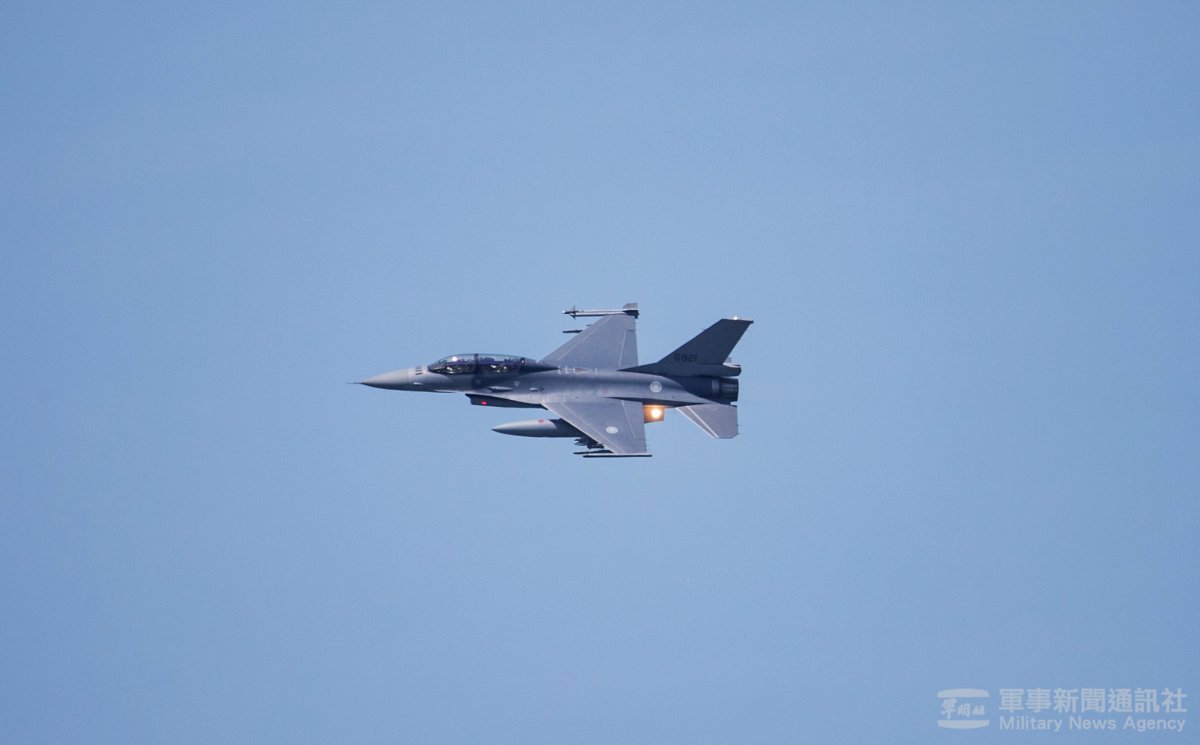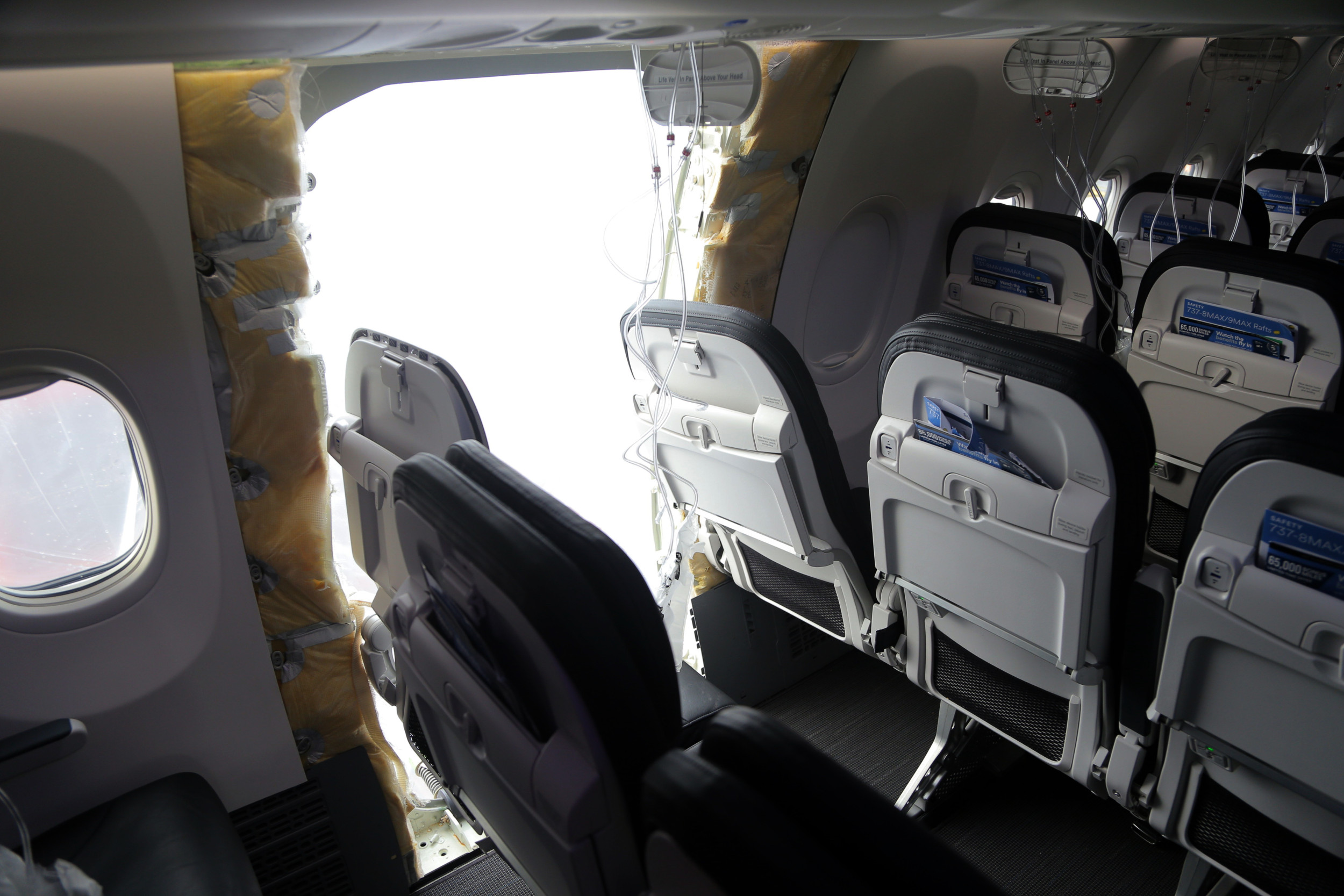Lockheed Martin is expecting to significantly increase its production of the F-16 Fighting Falcon in the coming years, though it will struggle to overcome delivery delays to critical U.S. security partners such as Taiwan.
The company—twice sanctioned by the Chinese government for supplying weapons and equipment to Taipei—is aiming to ramp up its annual output of the latest F-16 Block 70/72 variant, or the F-16V, to 36 units by the end of the year, company officials told the specialist magazine Air and Space Forces. By 2025, they want to build 48 jets per year.
But orders at the defense contractor's plant in Greenville, South Carolina, are piling up—a testament to the remarkable popularity of the fighter jet, which last month celebrated half a century since its maiden flight in 1974.
Long-time customer Taiwan finds itself in the queue alongside Bahrain, Bulgaria, Greece, Jordan and Slovakia, and likely Ukraine soon. The island's air force is a major operator of the airframe, but its pilots and aging fleet continue to be strained by Chinese warplane maneuvers in its surrounding airspace.

Taipei ordered 150 F-16 jets in 1992. A $4.5 billion retrofit program began in 2016 and was meant to cover 144 aircraft. When the Ohio-headquartered Air Force Life Cycle Management Center announced the project's completion on Monday, the F-16V modernization plan had reached 139 planes—a decline due to non-combat losses in recent years.
A second phase of the program is underway to equip Taiwan's fighters with more sophisticated weaponry.
In 2019, amid renewed tensions across the Taiwan Strait, Congress approved an $8 billion order for 66 new F-16s for Taiwan. When the order is fulfilled, Taiwan will operate Asia's largest F-16 fleet at more than 200 jets, but the timeline for delivery remains uncertain.
China's apparent willingness to flaunt its hard power across the Western Pacific has led to increased urgency in Taipei and Washington. Both want Taiwan to boost its self-defense capability—and fast—in order to dissuade Beijing from any military adventurism, but neither can escape real-world constraints.
Despite its increased output, Lockheed Martin may struggle to deliver the island's new F-16s by the original 2026 deadline, said Air and Space Forces, although the Taiwanese air force is expected to receive its first jet later this year.
The fighter aircraft are part of a lengthy arms backlog for Taipei, which U.S. lawmakers and analysts calculate is waiting on over $19 billion worth of American-made hardware.
The issue was at the heart of a letter addressed to Air Force Secretary Frank Kendall in November by two dozen legislators including Rep. Rob Wittman, a Virginia Republican who chairs the House Armed Services Committee.
The delivery was delayed by over 15 months "due to software development complexities not anticipated by the original equipment manufacturer," Wittman wrote, noting that the timeline had shifted from 2025-2026 to 2026-2027.
"To respond to China's escalating air power demonstrations, we emphasize the importance of addressing and resolving the unexpected and extended delay to the delivery of upgraded F-16 multi-role fighters and ground support equipment that we owe to Taiwan," the lawmakers said.
In a response from Kendall's office, Andrew Hunter, assistant Air Force secretary for acquisition, said the service "continues to explore all options to prioritize and expedite" the delivery, but said the island's order might be disrupted by competing "regional security concerns around the world."
Last month, Slovakia received its first F-16s after it retired its fleet of Soviet-era MiG-29s in 2022 and approved their transfer to Ukraine last year.
The F-16 Fighting Falcon was first built by General Dynamics. Thousands have been produced, and the majority remain in service in around two dozen nations. This year, Ukraine's air force is likely to join the growing list of operators.
Uncommon Knowledge
Newsweek is committed to challenging conventional wisdom and finding connections in the search for common ground.
Newsweek is committed to challenging conventional wisdom and finding connections in the search for common ground.
About the writer
John Feng is Newsweek's contributing editor for Asia based in Taichung, Taiwan. His focus is on East Asian politics. He ... Read more
To read how Newsweek uses AI as a newsroom tool, Click here.






